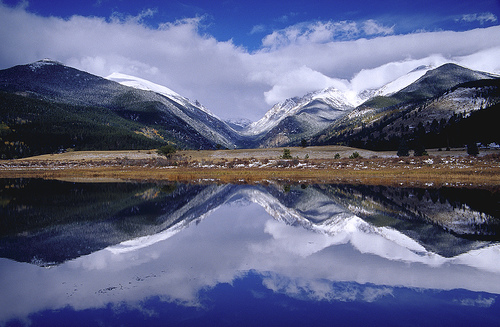Colorado’s prior appropriation system of water rights—“first in time, first in right”—has served our state well for over 150 years. But it allows senior rights to completely dry up our rivers and streams to meet the agricultural, municipal, commercial, or industrial needs of water users. Because water rights are private property, there is just so much the government can or should do to offset these impacts and preserve streamflows. There have been a number of meaningful steps in this direction. Since the 1970s, the Colorado Water Conservation Board has been appropriating instream flows and lake levels to protect the environment to the statutorily-mandated “minimum degree.” The Colorado legislature has authorized other water rights that tend to keep water in streams and rivers, like recreational in-channel diversions (i.e., kayak courses). But these instream flow water rights tend to be junior in priority and provide little protection for streamflows during drought periods.
I joined the Board of Directors of the Water Trust seven years ago because I was intrigued by its model: respect private property rights by paying market value to purchase or lease water rights to supplement streamflows in times of need. Rather than advocate to regulate water rights and thereby create an adversarial relationship with water users, the Water Trust works with farmers, ranchers, and municipal users and pays them to release stored water or temporarily forego irrigation to increase streamflows. Particularly in dry periods, when raising a crop can be difficult, many farmers and ranchers have welcomed leasing their water rights to the Water Trust to supplement streamflows in dry reaches or release cooler, more oxygenated water from reservoirs to support the aquatic environment. In addition to providing supplemental income to the water rights owners, the Water Trust arranges a secondary downstream use for the released water, which is especially important during drought periods. And all this can occur without permanently removing agricultural lands from irrigation.
It’s hard to put a price on preserving Colorado’s rivers and streams, but that’s the business of the Water Trust. With global warming inevitably reducing streamflows, together with the influx of people increasing water consumption, it’s easy to imagine more of the State being dewatered and losing the beauty and environmental benefits of our free-flowing streams. I’m proud of the work of the Water Trust to combat our diminishing streamflows while respecting the value of the private property that water rights entail.

Wayne Forman
Board Member, Colorado Water Trust
Shareholder, Brownstein Hyatt Farber Schreck, Denver
